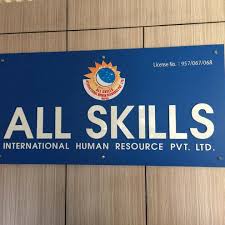
A degree that focuses exclusively on supply chain management is essential if you plan to pursue a career. A degree in Supply Chain Management will enable you to take the lead in a business. It involves strategic, tactical, and operational levels and helps improve organizational performance. You will also need to be able communicate well.
Project management is one form of supply chain management
Supply chain management is a key aspect of any business. Project management can help you manage your supply chain. Project management helps you create and implement a business plan. The primary goal of a project, is to create a project that meets your goals and meets your success criteria. Project managers ensure that your products and services meet your quality standards and are delivered on schedule. Project management can provide many benefits including increased collaboration, cost savings, quality control, risk mitigation, and improved collaboration. However, it is not without its drawbacks.
Although strategy and tactics are essential, they can't be implemented without planning. Without clear direction, strategies can go wrong and lead to projects that fail to reach their goals. Successful implementation of supply chain projects depends on the process of project management. Using best practices, project managers can implement solutions and implement new strategies to meet existing needs.
It encompasses tactical, operational, and strategic levels.
The three main levels of a supply chain are strategic, tactical and operational. The foundation of all levels is laid by the strategic level, which is critical to supply chain success. It involves analysing and gathering data, as well as assessing the key factors that influence supply chain performance and making decisions on the basis of that information. Operational decisions are made to satisfy customer needs. Strategic decisions are critical to the success of the supply chains.

The strategic level sets out the overall company goals, identifies strengths or weaknesses, and provides a vision for the future. The tactical level is responsible for executing strategies and taking specific steps to achieve them. These plans can include forecasting, inventory management, production scheduling, shipping, and invoicing. However, some analysts argue that the globalization and resulting in purely strategic functions has made tactical planning less important.
It improves organizational performance
The effectiveness of supply chain management in an organization is largely determined by its ability to improve organizational performance. Supply chain performance can be measured and evaluated through a variety of methods, including customer relationship management (CRM), internal supply chain management, and information sharing. These methods all help to improve organizational performance.
But not all supply chains work the same. Some companies have never created a coherent supply chain structure. It can lead to single functions reporting to multiple parent functions or points within one parent function. This can lead confusion and slow response time to critical issues. As an example: Demand planning processes might report to the supply-chain manager in one country, but not to the sales managers in another. These organizational problems can result in significant inefficiencies.
This requires communication skills
Supply chain management requires strong communication skills. Supply chain leaders must have the ability to communicate complex ideas effectively and foster collaboration. A supply chain leader must be able and willing to create accurate reports. These skills will improve your career prospects. If you want to work in supply chain management, consider furthering your education or pursuing certifications.
As a supply chains manager, you will deal with many people. You will need to be able to listen and empathize with others. Without empathy, your leadership may be rejected, particularly during periods of change. Employees might feel devalued and rejected if you don't take the time to listen to their concerns. As a result, it is essential to learn more about yourself and develop your skills.

It can lead to a career in supply chain management
A degree in supply management could open doors to many career options. Supply chain managers are responsible for managing a range of processes from forecasting consumer demand, to the delivery of finished products on shelves. The job involves the management of complex networks of people, vendors, transportation systems, and other stakeholders. To be successful, supply chain managers need to be proficient in both business management and computer science.
You have two options for completing the supply chain management degree program: online or in traditional classroom settings. You'll find that your training is comparable to a four year program. Online programs may offer less networking opportunities, but they are just as good in quality. You'll also need strong analytical skills and a love of working with data and forecasts. A program that is online can prepare you for teaching the technical aspects and management of supply chains to others.
FAQ
What are management concepts?
Management Concepts are the management principles and practices that managers use in managing people and resources. These topics include job descriptions, performance evaluations and training programs. They also cover human resource policies, job description, job descriptions, job descriptions, employee motivation, compensation systems, organizational structures, and many other topics.
What role does a manager play in a company?
The role of a manager varies from one industry to another.
In general, a manager controls the day-to-day operations of a company.
He/she will ensure that the company fulfills its financial obligations.
He/she ensures that employees follow the rules and regulations and adhere to quality standards.
He/she designs new products or services and manages marketing campaigns.
Why does it sometimes seem so difficult to make good business decisions?
Complex systems with many moving parts are the hallmark of businesses. People who manage them have to balance multiple priorities while dealing with complexity and uncertainty.
Understanding how these factors impact the whole system is key to making informed decisions.
This requires you to think about the purpose and function of each component. Next, consider how each piece interacts with the others.
You should also ask yourself if there are any hidden assumptions behind how you've been doing things. You might consider revisiting them if they are not.
Asking for assistance from someone else is a good idea if you are still having trouble. They may see things differently from you and have insights that could help you find a solution.
Statistics
- Hire the top business lawyers and save up to 60% on legal fees (upcounsel.com)
- This field is expected to grow about 7% by 2028, a bit faster than the national average for job growth. (wgu.edu)
- 100% of the courses are offered online, and no campus visits are required — a big time-saver for you. (online.uc.edu)
- UpCounsel accepts only the top 5 percent of lawyers on its site. (upcounsel.com)
- The average salary for financial advisors in 2021 is around $60,000 per year, with the top 10% of the profession making more than $111,000 per year. (wgu.edu)
External Links
How To
How can you implement Quality Management Plan (QMP).
QMP (Quality Management Plan), introduced in ISO 9001,2008, provides a systematic method for improving processes, products, or services through continuous improvement. It focuses on the ability to measure, analyze and control processes and customer satisfaction.
QMP is a standard way to improve business performance. QMP helps improve production, service delivery and customer relationships. QMPs should encompass all three components - Products and Services, as well as Processes. A "Process" QMP is one that only includes one aspect. QMPs that focus on a Product/Service are known as "Product" QMPs. If the QMP focuses on Customer Relationships, it's called a "Product" QMP.
When implementing a QMP, there are two main elements: Scope and Strategy. These elements are as follows:
Scope is what the QMP covers and how long it will last. For example, if you want to implement a QMP that lasts six months, then this scope will outline the activities done during the first six.
Strategy: This describes the steps taken to achieve the goals set out in the scope.
A typical QMP is composed of five phases: Planning Design, Development, Implementation and Maintenance. Here are the details for each phase.
Planning: This stage determines the QMP goals and prioritizes them. To understand the expectations and requirements of all stakeholders, the project is consulted. The next step is to create the strategy for achieving those objectives.
Design: In this stage, the design team designs the vision and mission, strategies, as well as the tactics that will be required to successfully implement the QMP. These strategies are executed by creating detailed plans.
Development: The development team is responsible for building the resources and capabilities necessary to implement the QMP effectively.
Implementation is the actual implementation of QMP according to the plans.
Maintenance: The maintenance of the QMP is an ongoing task.
Several additional items should be added to the QMP.
Stakeholder involvement is important for the QMP's success. They need to be actively involved in the planning, design, development, implementation, and maintenance stages of the QMP.
Project Initiation: The initiation of any project requires a clear understanding of the problem statement and the solution. The initiator must know the reason they are doing something and the expected outcome.
Time Frame: The time frame of the QMP is very critical. You can use a simplified version if you are only going to be using the QMP for short periods. If you're looking to implement the QMP over a longer period of time, you may need more detailed versions.
Cost Estimation: Cost estimation is another vital component of the QMP. Without knowing how much you will spend, planning is impossible. Cost estimation is crucial before you begin the QMP.
QMPs should not be considered a static document. It changes with the company. It should therefore be reviewed frequently to ensure that the organization's needs are met.